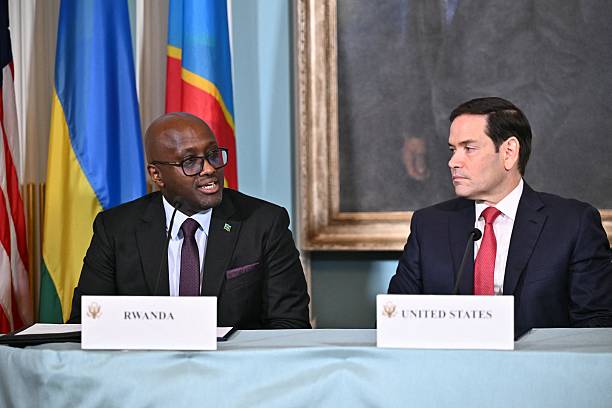It was meant to be an ordinary day in Durban, South Africa. But for two Nigerian traders — Austin and Ayo — it turned out to be their last. The two men were gunned down in cold blood by masked attackers in what many are calling another senseless act of violence against Nigerians living abroad.
The news hit hard back home. And for the Chairman and CEO of the Nigerians in Diaspora Commission (NiDCOM), Abike Dabiri-Erewa, the message was loud and clear: enough is enough.
“This is not just tragic — it is unacceptable and senseless,” Dabiri-Erewa said in a strongly worded statement released through NiDCOM’s spokesperson, Abdur-Rahman Balogun.
According to reports, the gunmen stormed Austin’s business premises and shot both him and his visitor, Ayo, point blank. Both men died on the spot, and just like that, two more families were thrown into mourning, two dreams cut short, and yet another painful reminder that Nigerians in South Africa are still not safe.
The Nigerian High Commission in South Africa has since swung into action. But let’s be honest — how many times have we heard this before? For years, Nigerians have been caught in the crosshairs of xenophobic violence and criminal attacks across South Africa. From Johannesburg to Cape Town, Durban to Pretoria, the names and faces may change, but the headlines remain painfully familiar.
One might ask: didn’t Nigeria and South Africa agree to put an “early warning system” in place to prevent these tragedies? Yes, they did. But as Dabiri-Erewa noted with clear frustration, that mechanism has yet to be properly implemented. In Nigerian street talk, “they just carry file up and down without action.”
Still, amid rising tension and growing anger among Nigerians living in South Africa, the NiDCOM boss is urging calm. She pleaded with Nigerians not to take the law into their own hands while waiting for South African police to complete investigations.
“The Acting Nigerian High Commissioner in South Africa has demanded a full and impartial investigation,” she said. “We must allow the process to take its course.”
But back in Nigeria, the calls for justice are getting louder — and rightly so. These were not criminals. These were everyday Nigerians trying to earn an honest living abroad. And now their families must bury their sons without answers.
It’s not just about Austin and Ayo. It’s about every Nigerian who steps on foreign soil in search of better opportunities and ends up paying with their lives. And for those of us at home, it’s a bitter pill — another reminder that being Nigerian should not be a death sentence abroad.
Until there is action — not just promises, not just press releases — the question remains: how many more Austins and Ayos will it take?
As we mourn, we also ask — will this finally be the moment South Africa wakes up? Or will we be writing this same story again in a few months?
For now, the Nigerian spirit must endure. But honestly, how long can we keep saying “e go better” when our people are being buried in foreign lands?
Rest in peace, Austin and Ayo. Nigeria sees you. And we will not forget.





